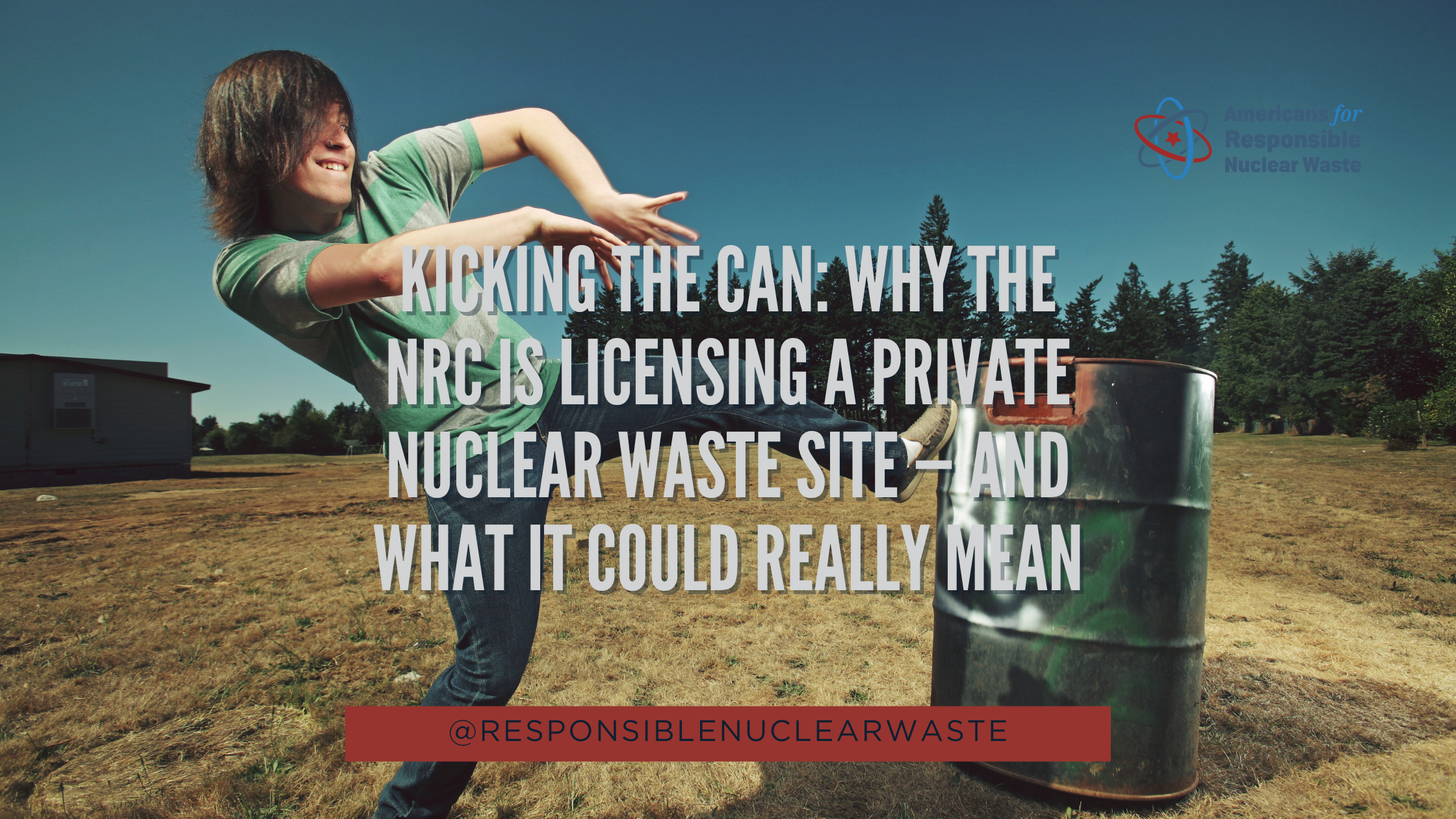Kicking the Can: Why the NRC Is Licensing a Private Nuclear Waste Site — And What It Could Really Mean
With over $40 billion already collected in the Nuclear Waste Fund and no permanent solution in place, it’s a fair question: Why is the Nuclear Regulatory Commission (NRC) licensing a private company to store America’s most dangerous waste in West Texas?
Is it a solution—or a delay tactic dressed up as progress?
THEORY 1: Political Paralysis = Regulatory End-Around
Congress has failed to act on permanent storage. The Yucca Mountain project was shelved. States are blocking federal efforts. So the NRC may be turning to private companies like Interim Storage Partners (ISP) not because it’s ideal—but because it's the only path forward under current political conditions.
In other words: if no one will authorize a permanent solution, a “temporary” one through a private license gets the waste moving.
THEORY 2: Cheaper (For Now), But at What Cost?
Licensing a private company shifts financial, political, and legal risk away from the federal government—temporarily. It also avoids publicly debating a long-term, deeply unpopular plan.
But this tactic:
Leaves billions of public dollars in limbo
Opens the door to de facto permanent storage
Bypasses public accountability
It’s not solving the problem. It’s outsourcing it.
THEORY 3: Delay by Design
Some watchdogs believe this licensing strategy is intentionally designed to avoid facing the real issue: the federal government’s legal failure to build a permanent geological repository.
By greenlighting a “temporary” facility, the NRC can appear to take action—while allowing the permanent solution to remain unresolved.
This kicks the can down the road, possibly for decades, while placing the burden on rural communities like Andrews, TX.
THEORY 4: Shift the Blame, Avoid the Lawsuit
The federal government has been sued repeatedly by utility companies for failing to fulfill its waste obligations. By allowing a private solution, the NRC can say: “Look—we’re making progress.”
It’s a strategic buffer—even if it’s not a real fix.
Why It Matters Now
The proposed ISP facility in West Texas could become permanent in practice—without the safeguards, infrastructure, or public consent required for an actual permanent repository.
And if the U.S. Supreme Court rules in favor of the NRC’s ability to license this private site without Congressional authority, it sets a dangerous precedent:
Undermining the Nuclear Waste Policy Act
Sidelining state and community voices
Allowing private storage to substitute for public responsibility
We Need Real, Responsible Action
We’re not anti-nuclear. But we are pro-transparency, pro-local control, and pro-common sense.
Licensing a private “temporary” facility is not a solution. It’s a stall tactic with long-term consequences for safety, law, and fairness.
TAKE ACTION
The stakes are too high to stay silent. The NRC’s decision to license a private nuclear waste site in Texas isn’t just bureaucratic red tape—it’s a dangerous precedent that bypasses public consent, undermines state rights, and threatens the safety of millions. If we allow this decision to stand, it opens the door for nuclear waste to be transported through our communities and stored indefinitely in places that never agreed to be dumping grounds. Tell the White House: It's time to halt this reckless plan and demand a responsible, consent-based solution.

